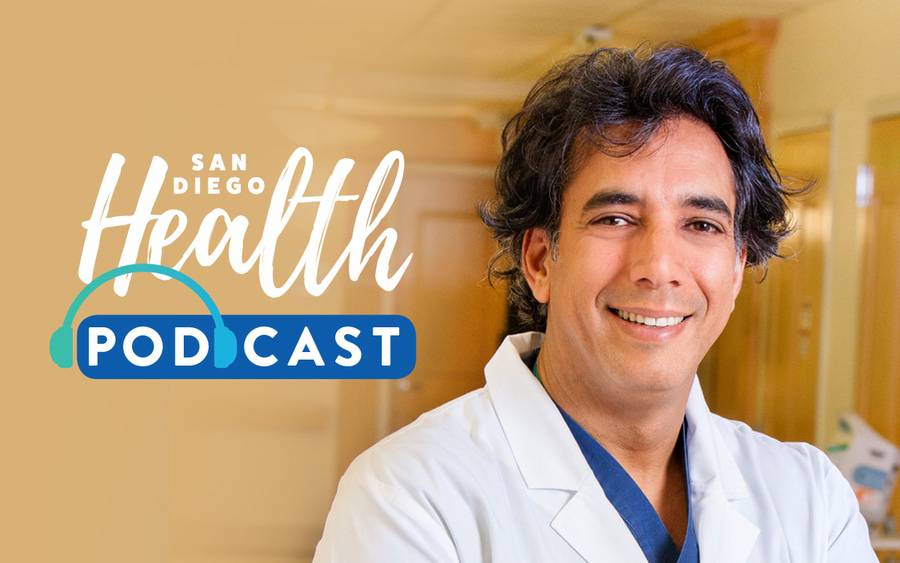High-Risk Pregnancy: Risk Factors, Conditions & Treatments (podcast)
A dynamic healthcare team can help navigate a high-risk pregnancy

Dr. Sharam Daneshmand, OB-GYN, Maternal and Fetal Medicine, Scripps Clinic
A dynamic healthcare team can help navigate a high-risk pregnancy
The overwhelming joy that comes with finding out you’re pregnant can quickly turn to anxiety upon learning your pregnancy is high-risk. Your mind fills with questions: What does that mean? What can I do to protect my baby’s health as well as my own? Many factors can elevate the risk for complications, including age, increased body mass index, a previous pre-term delivery, or a preexisting medical condition, such as diabetes of high blood pressure. Extra tests or monitoring may be required, but a well-qualified health care team will do everything they can to make sure you and your baby stay healthy.
In this episode of San Diego Health, host Susan Taylor and guests perinatologist Shahram “Sean” Daneshmand, MD, medical director of the Scripps Clinic Division of Maternal and Fetal Medicine, and Sara Fernandes, a prenatal genetic counselor, discuss what qualifies a pregnancy as high-risk, how to manage a high-risk pregnancy and how genetic factors play a role.
Though pregnancies are notoriously difficult to plan, some factors can be flagged early in the pregnancy or even before, so it’s important to undergo preconception counseling before you start trying. Genetic counselors like Fernandes screen for certain chromosomal conditions more common in women over 35 and whether they could potentially have a child with a genetic condition, such as cystic fibrosis.
Scripps offers comprehensive prenatal care, labor and delivery services, and if necessary, specialists in high-risk obstetrics and neonatology.
Listen to the episode on how to manage a high-risk pregnancy
Listen to the episode on how to manage a high-risk pregnancy
Podcast highlights
Watch the San Diego Health video on this topic
Watch the YouTube video on High-Risk Pregnancy: Risk Factors & Treatment Options with San Diego Health host Susan Taylor.